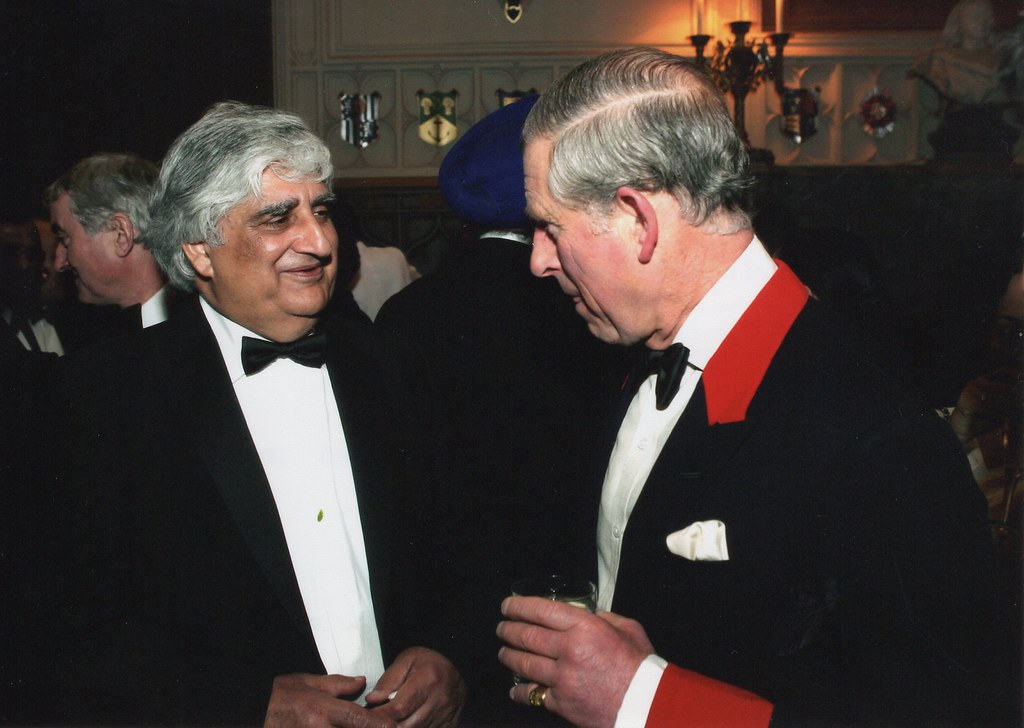
Charting New Paths: Dr Kaul on Innovation, Leadership and Community
Mohan Kaul, a much celebrated and strong advocate of international trade and investment has had an illustrious career and continues to influence businesses and policies across the globe. Born in Habba Kadal in Srinagar, Kashmir, he, at a very young age, decided to embrace change with an open mind. He chose paths less travelled by fellow Kashmiris and has never looked back or regretted his choices.
In our conversation with Dr Kaul, we set out to discover more about the man behind the name, his life mission, experiences and what his future plans were. It has been an absolute honour and a privilege to be speaking with him.
For someone who hasn’t read your bio or read about you, tell us a little bit about your journey and take us through the transition of the boy that was to the giant that stands before us today.
I was born in Habba Kadal, the heart of Srinagar which was mostly an area inhabited by Kashmiri Pandits. I did my schooling mainly in Srinagar (DAV Public School) and in Jammu where my parents moved to during Darbar move (Jammu and Kashmir until recently used to have 2 capitals, Srinagar the summer capital and Jammu as its winter capital. The entire government machinery used to move locations twice each year from Srinagar to Jammu in Winter and back to Srinagar in Spring as part of so called ‘Darbar’ move, literally meaning moving the ‘court’). After graduating from S P College, I was looking for my next adventure. Electronics engineering was very new those days, our parents didn’t know about it at all, yet I decided to travel all the way to Madras (now known as Chennai). Those days it used to take four or five days to reach Madras. You had to travel by bus from Srinagar to Jammu to Pathankot, then you took a train from there to Delhi followed by another train from Delhi to Madras, which took about 45 hours. This was the first time I travelled this further out from Kashmir and I could only travel home once in a year, but I enjoyed life in Madras and my engineering course.
I completed my engineering with specialisation in digital electronics. It was the era when computers were very new. I received a UNESCO scholarship to pursue my masters and PhD in Paris. It was an honour to have been selected for this scholarship and study in Sorbonne University which is a fantastic university. I hardly knew any French at that point. I studied with some friends at Alliance Française de Delhi but most of it I learnt by experience. As you can see, my journey has been a series of accidents, which I have taken advantage of.
It was so interesting to hear about the journey of a very sheltered boy from Kashmir. At that time, most Kashmiri Pandits opted for Civil Services, trusted engineering sectors like mechanical or civil engineering or medical. In fact those were the only three options or avenues that people had but you challenged that status quo. This nicely segues into my next question: What inspired you to take that path? Was there a role model that you followed, or was it something you had read or you wanted to emulate? What was the trigger for you to reject all that and to pursue engineering in electronics?
That’s a good question. My cousins were civil engineers, yet I was choosing electronics. I am basically born a dreamer and I am dreaming all the time. I also read quite a bit and what others were doing at that time excited me. So, this idea of innovation and exploring something new was always in my mind. Imagine applying for engineering in Madras! I thought I would learn something new and that excited me. When I reached Madras, I was very comfortable. It didn’t feel different or new to me somehow. I got comfortable quite quickly. Then during my 2nd Year of engineering, I challenged a Tamil Brahmin for the post of General Secretary and I won by 7 votes. I don’t know how! Even now, I am always trying to do something new, learn and explore something I haven’t done before. If you visit my website, you will get that feeling that I am still actively exploring new opportunities or trying my hands at something that I haven’t done before. I believe it was this urge to learn and explore that pushed me towards electronics at that point rather than choosing a safe option like civil or mechanical engineering.
What’s coming out of this, is the fact that you are comfortable in the unknown in a strange way and that this – change, a little disruption and challenging the status quo excites you because that is where you see innovation happening, that is where you see real change coming about. So even though you interestingly say that your journey is a series of accidents, you turned these around in your favour and made them work for you. Would that be fair to say?
Yes, absolutely. These accidents were not created by me, they just happened and I took advantage of each of them. I can say my life is a series of happy accidents.
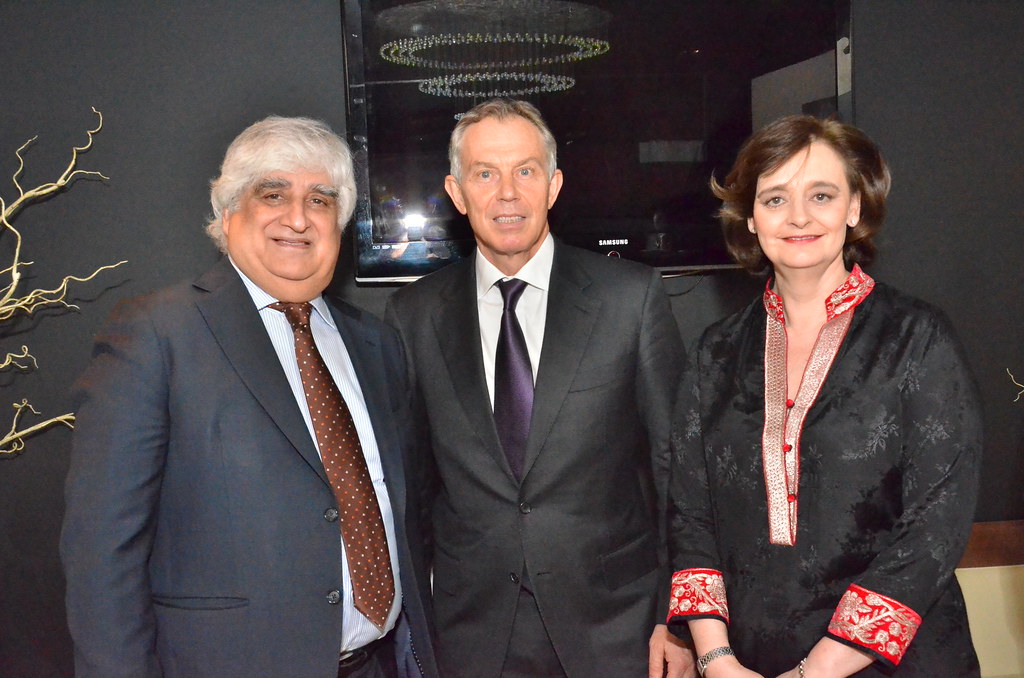
That would explain how you started from engineering and did your PhD abroad and of course when I look at your journey it seems to me that your quest to explore the unknown charted a different path and lead you into becoming, a think tank, a policymaker, a person who advised world leaders. Take us through that second part of your journey.
I did my PhD at the Sorbonne University in Paris. My research was based at the Nuclear Research Centre, around 20 miles from Paris. It was one of the largest centres of nuclear research. My research was focussed on optimisation models, nothing to do with nuclear science but based within that department. It’s here that a second set of accidents happened. I was quite happy, doing pretty well with my education and work and my parents were happy with my progress. I was in my early 20’s.
So now the story. It was the early 70’s and I was working at the computer centre within the Nuclear Research Centre. I was working on the second largest IBM 370 installed outside NASA. France at that time was developing a hydrogen bomb at the same centre and the team was using the same computer system. I had nothing to do with that. I was working on inventory modelling, but I got a call from centre administration. I was the only non-French citizen who had access to this system at that time and they wanted me to take up French citizenship so that I could continue working there. They were quite happy with my work and wanted me to stay. There weren’t a lot of Indians in Paris those days. I used to come to London every three months to eat in Southall and then go back to Paris! When I met with the administrator, I wasn’t sure about taking up French citizenship. I wasn’t sure what my parents would think of it. I am a British citizen now but those days were different. So I took the application forms and went into my room – I didn’t come out for many days! I decided not to become French at that point, took a month’s leave and went to Canada and then to the USA. I thought I may be able to teach at the Montreal University as it has both English and French.
But then I went to Boston and saw an advertisement for a new institute – Indian Institute of Management (IIM), Ahmedabad which was being set up by Harvard Business School. Vikram Sarabhai and his team were looking for young faculty to join IIM. So I applied and they loved me and I was offered the role. I completed an educational programme at Harvard Business school and moved to Ahmedabad. I didn’t go back to Paris that time, all my belongings were still there.
I joined IIM as a faculty member. At that same time, the Indian Ambassador wrote to the Indian Air Force and briefed them about my PhD thesis on simulation. They offered me a role to work on simulation at their newly opened laboratory in Bangalore, but I chose the IIM role as I felt it was more prestigious. The Air Force personnel came to see me to understand why someone technical like me would want to take up a job teaching kids to sell. That was my second accident, but I was happy with my choices. I met my future wife at IIM, she was also teaching.
Some people we know have a very well charted path or plan for their lives and success. Others, as you say, get into a series of events, embrace them and then one opportunity leads to another opportunity. So, what is really interesting for me, looking at your successful path is that you didn’t have a defined plan and yet you made such a success out of it.
Once I decided to take a certain path, even if it was an accidental one, I totally immersed myself in it. I worked hard and gave it my 100%, to be honest a lot more than 100%. Whatever came my way, I worked extremely hard to achieve my goal and tried to be innovative and create something good out of it. I have never looked back and regretted not doing something.
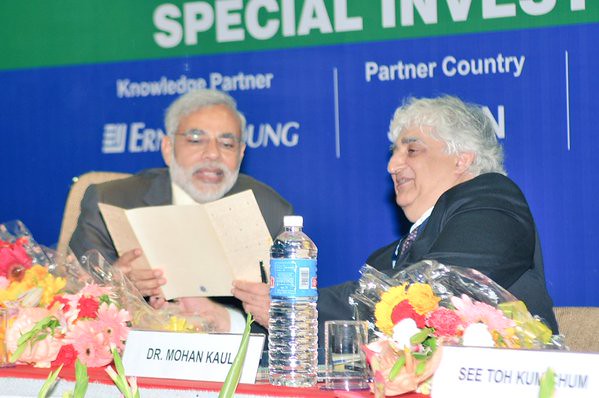
These are fantastic life lessons. Always innovating, looking at things differently, immersing yourself in whatever you do completely and having no regrets. These are definitely key reasons for how you have accomplished so much. I love that we are going through this like a little bit of a train journey, stop by stop and soon we will arrive at our destination. Please take us through to the next stop.
At IIM, I was one of the youngest professors and then the youngest Dean. I was very keen to become the director and when the post became available, I applied for it. But they chose a former Governor of the Reserve Bank of India, an eminent person of his time. I was in my early 30’s and this actually hurt me, so I decided to leave. While at IIM, I had done a lot of consulting for institutions like the World Bank and a lot of people knew me. Many thought, I am committing a mistake by leaving IIM and that may have been true. Nonetheless I decided to leave and joined the United Nations as an advisor.
Remember, we are now talking about the mid 1980’s. Those days organizations and governments were all going through management reforms and so were the United Nations and World Bank. I was tasked with changing management practices in the Asian countries. I was based in Washington, then in New York before moving to Malaysia, Singapore and the Philippines. I did advisory work in these Asian countries including China. One story that is very close to my heart is working with the Nobel Laureate Muhammad Yunus. He was setting up Grameen Bank, a community development bank that provided small loans to poor families in the villages in Bangladesh to help them earn a living through trade. I conducted the first evaluation for the World Bank for that project. That project was really effective. I spent 5 to 6 weeks with him, travelling between remote villages of Bangladesh, talking to young people about their ideas and how they would put this small loan to use. I continued with the United Nations role for about 5 years. My children were young and I couldn’t travel as much. I decided to take up a similar role in the Commonwealth Secretariat and became a Diplomat and Head of Government Reforms in late 80’s moving to London.
That’s amazing. It doesn’t cease to amaze me that you finish working on one discrete project and a new project comes your way, which is quite different, but also interlinked. It’s quite fascinating really to see that journey and what you did and the level of influence you have had.
I’ve moved from one candle stick to the other, I should have stuck with one thing. Some people probably don’t like it, some are not comfortable in that process and some are.
It’s very individual and this resonates deeply with me and my own professional journey. I love that you have owned every minute of your journey and have not gone back and wished things would have worked out differently. Now, I know you said you don’t really have regrets, but if you could turn back time and talk to your 18 year old self, what would you tell him.
I think it’s personal, but I would ask if you are happy with what you are doing then do it. In that sense, I was the happiest person when I was carrying out those roles, on reflection I loved the challenge. I enjoyed those roles, working at the Secretariat, reforming governments, travelling and I have fantastic stories to tell. The last stop of my journey before I retired was when I was asked to look at development in the private sector in the Commonwealth during the Tony Blair years. I created a number of entrepreneurs in Commonwealth countries and the first investment in Tanzania first investment in Sierra Leone where nothing was happening. Now that I think of it, I should have documented these experiences when I was young, written more books. My advice to young people is to be happy, whatever you are doing, give it your 100% and don’t worry if you lose an opportunity. There will be many more in future, but work hard and even if it is not your first choice, give it all you have and be happy.
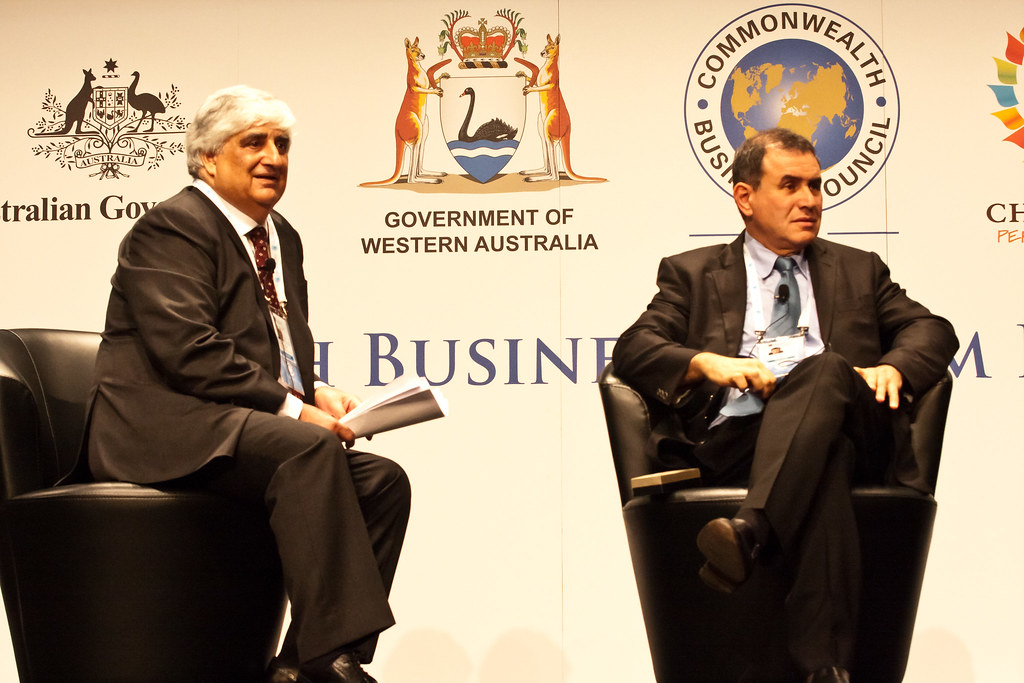
Today people need instant validation. They are not looking for happiness, they’re looking for validation, which is the wrong reason to pursue something. So it’s a wonderful thing to remind people from someone like yourself that happiness is key. Immerse yourself, be patient because things don’t happen overnight. I would like to end on one final question, which is to talk about the Kashmiri community if that’s okay with you. We are a community of exceptionally intelligent, bright and enterprising people and yet, when it comes to taking risks, doing something different, challenging the status quo, we are not automatically inclined to do that. What advice would you give the community and is this something where, under your auspices, we could create a forum or an opportunity for Kashmiri youth across the world, that could help them realise their dreams?
Coming to the second part of your question first, let’s do it. Dr Ganju was very inspiring and he did a lot of work helping Kashmiris in the UK. We as a community have done well wherever we have gone to during the many exodus’ from Kashmir. We are at a different point now. We have the best professionals in our community, who have established themselves in their chosen fields across the globe. We need to think of ways to use it to our advantage, to help younger people. I would love to be part of this project and we can get started in the UK and then make it available across the world. We can have virtual programmes, webinars by esteemed speakers talking about their experiences and build a network for our community.
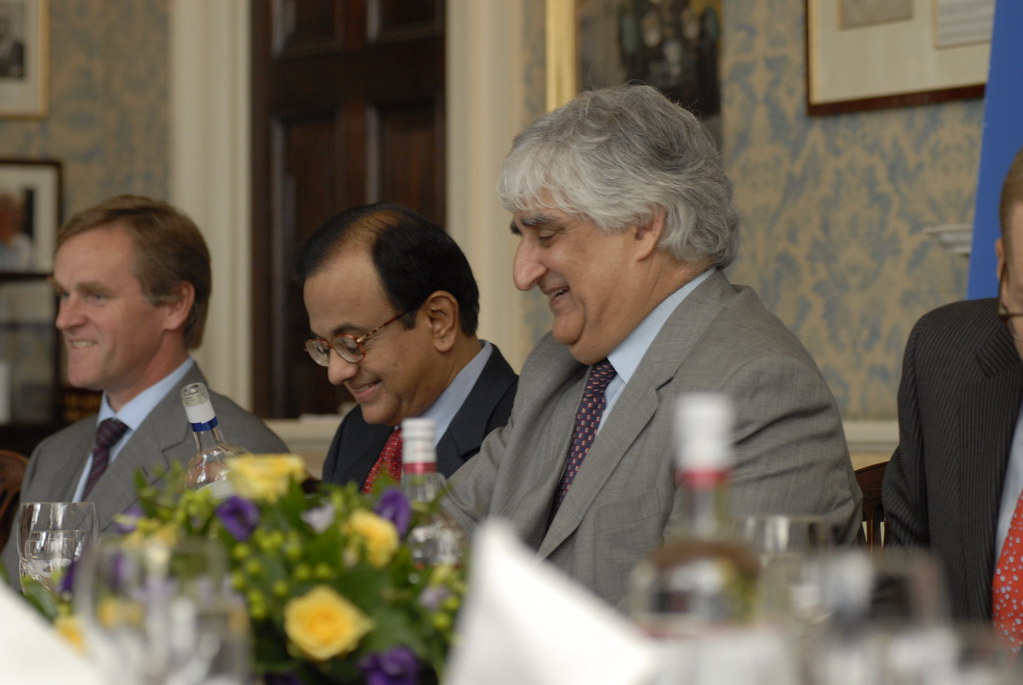
Some of us have been doing a lot of brainstorming around this and certainly know that many people would like to come together. One of the things that I do bemoan is that we don’t share between ourselves as much of the knowledge and the kind of experience that we have not because we don’t want to share, necessarily, but life takes over, priorities shift and we just become engrossed in what we’re doing but I do believe, if we have to leave behind a legacy we need to think about ways to help the community.
We are a very proud community and we are not good at sharing our problems. We always talk about our successes but keep our problems hidden. We have to get the community to open up. Our children need to understand that it’s ok to talk about problems, to find ways to solve them and to ask for advice/help. That’s how opportunities arise. I don’t see this in other communities, they talk about their problems openly. I am happy to provide guidance and help if I can in any way.
What I personally would be really interested in seeing is that with people like yourself who have got so much knowledge, experience and connections, can start to develop a Kashmiri pandit network. I firmly believe that ultimately it boils down to the quality of the network, because it’s people that you have met and known that help you in your journey. I’m absolutely heartened and delighted that you are on board with this and we will come back to you with some thoughts. But can I just say it has been an absolute pleasure Mohan uncle, to have this conversation. Thank you for your time and thank you so much for sharing your insights, because it has been wonderful to have this conversation.
This interview draws from a conversation that took place between Dr Mohan Kaul, Sheetal Raina and Mridula Kaul in 2021.
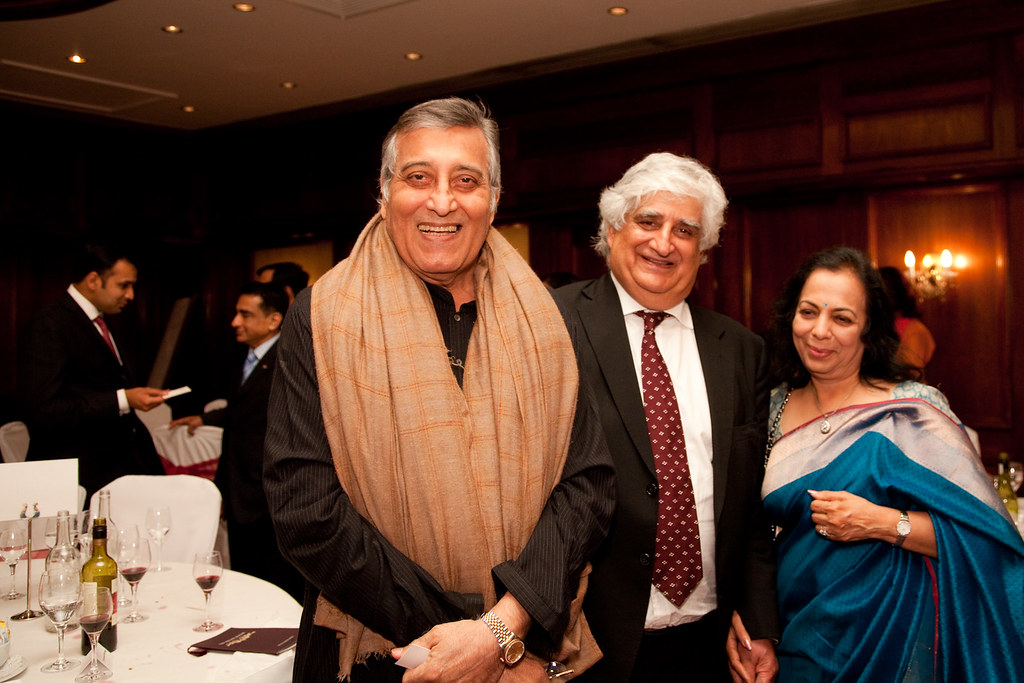
Dr Mohan Kaul
Professor Dr Mohan Kaul is a distinguished policy adviser, business leader, academician and social entrepreneur, widely recognised for his contributions to international trade, investment and emerging markets. He currently serves as Vice Chair of the Indo‑UK Institute of Health and President of the Indian Partnership Forum, a UK-based think tank focused on policy advocacy and strategic collaboration. Dr Kaul has led more than 50 high-level forums, promoting investment in countries such as Ghana, Mozambique and Nigeria. He played a key role in advancing public–private partnerships, digital inclusion and WTO trade facilitation through initiatives like the Boksburg Group. He has addressed the UN General Assembly, organised major international summits and advised Presidents and Heads of Government worldwide. He also chairs the UK-India Innovation Fund (Pontaq), Alglotech Ltd and Global Investment Advisory Ltd. As the founding Director-General and former Chairman of the Commonwealth Business Council, Dr Kaul remains a central figure in global development through his ongoing leadership and advisory roles. Learn more at www.kaul.co.uk.


